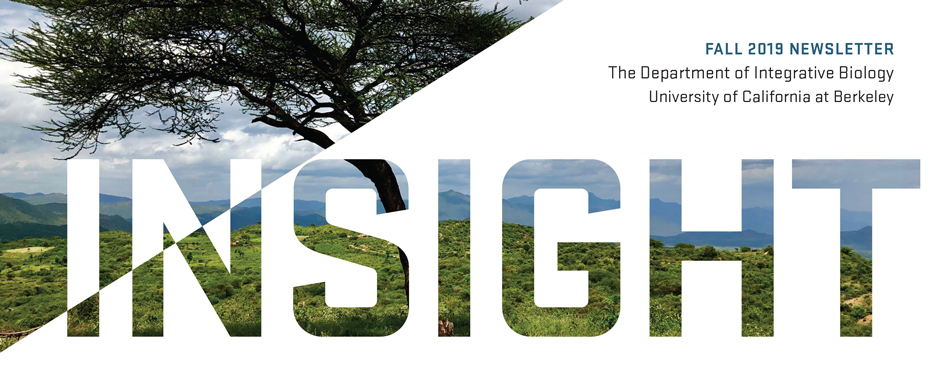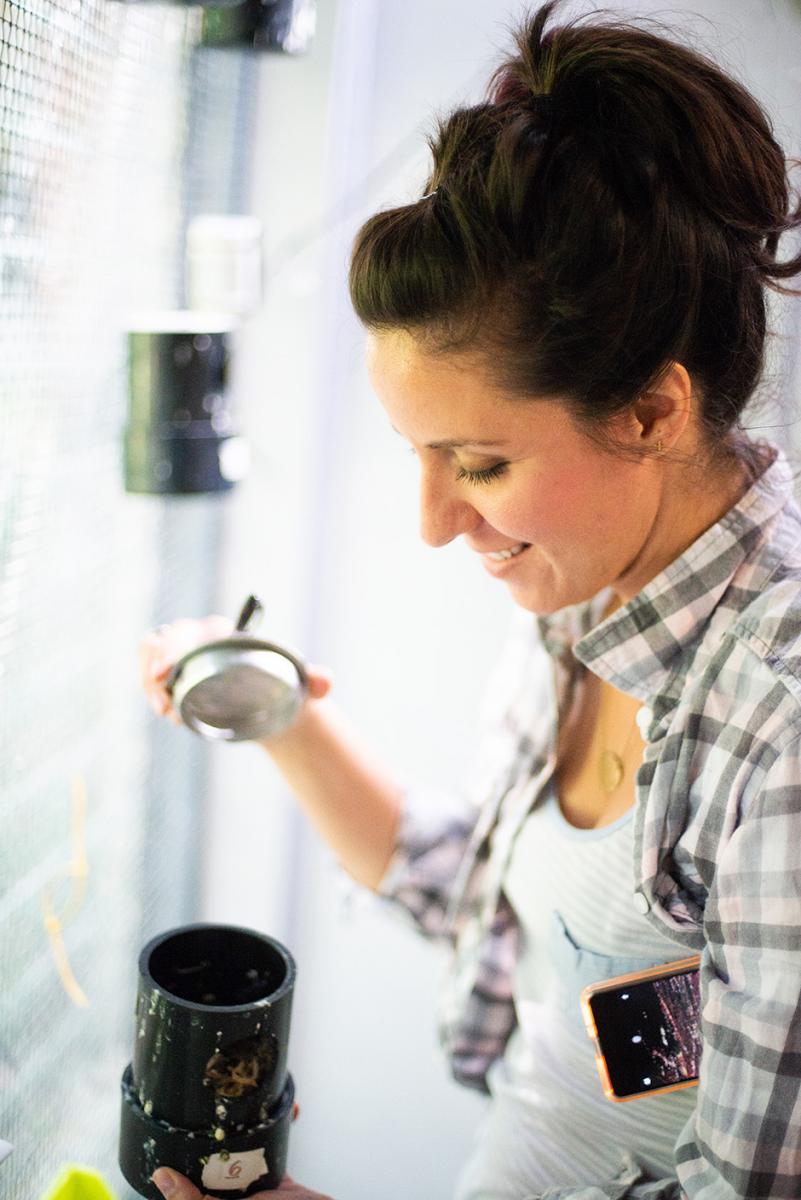 |
|
Alonge studying whether zebra finch females prioritize survival over parental care (Photo credit Cody Limber) |
Mattina Alonge, a third-year IB PhD student, is driven to pursue research questions that interest her — whether in the lab at Berkeley or in the field in Madagascar, and in species as different as birds and bats. Alonge is in George Bentley’s lab where she studies how the environment affects reproductive physiology, with a focus on the trade-offs between the reproductive and immune systems.
As a competitive figure skater in high school, Alonge’s goal had originally been the Olympics. But she took a break from skating and ended up earning a BS in biochemistry from Stony Brook University. She then decided to try research by doing a Master’s in animal physiology at DePaul University, where she discovered she loved the freedom to explore her own questions, sparking her interest in a scientific career.
Alonge worked in several research positions before applying to PhD programs. “I wanted to make sure I was going to love what I was going to dedicate my time to,” she says. After studying reproductive endocrinology at the Lincoln Park Zoo with snow leopards and an endangered squirrel species, she realized she wanted to work on reproductive biology “related to an ecological context” for her PhD.
This brought her to the Bentley lab, whose main focus is reproductive neuroendocrinology in birds. In addition to her interest in the research topic, Alonge had heard that Bentley was a supportive mentor — both scientifically and personally — which was an important factor in her decision to join the lab.
Alonge says another major reason she chose IB was because it is a “really diverse program” in terms of aspects such as students’ ages, family status, and academic backgrounds. “I wanted to be in a place where all types of backgrounds and all types of priorities were supported, and Berkeley really represented that to me,” she says.
In the Bentley lab, Alonge has been working on a variety of projects related to how the environment influences reproductive physiology in animals. She says her focus is on “trade-offs between different physiological systems,” such as the immune and reproductive systems. “Basically … how does an animal decide to prioritize taking care of itself and its immune function versus reproducing, given a set of environmental conditions?”
In one of her projects, Alonge looks at how zebra finches may alter their parental care behavior when they are ill. She is interested in learning whether sick birds “prioritize themselves and take care of their self-maintenance” or if they “actually dedicate most of their time toward raising their offspring, knowing that they're not doing well and that they should … put all of their effort into the new generation.” On a more molecular level, she studies how being sick can affect fertility in birds.
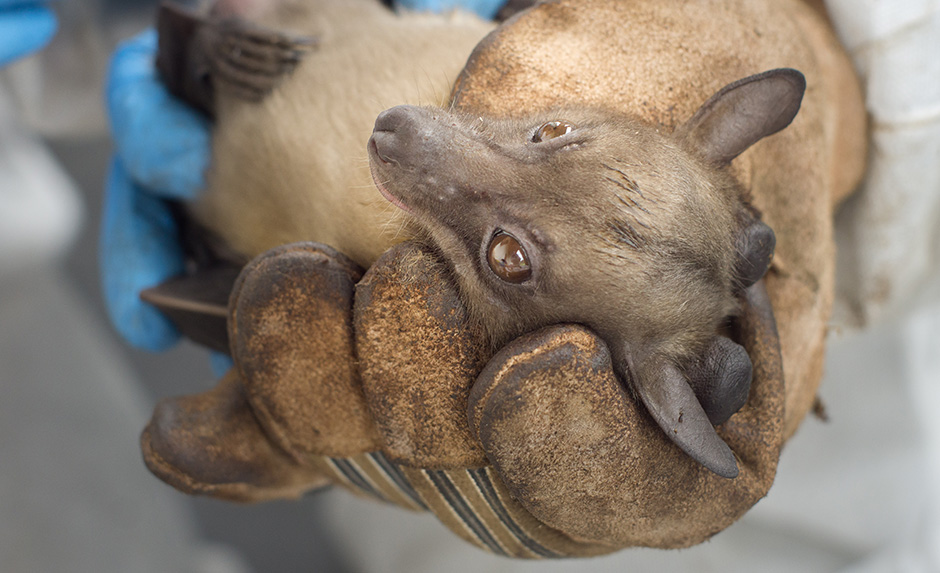 |
|
Eiodolon dupreanum, fruit bat captured in Madagascar, Dec 2018 - Jan 2019 |
Alonge also studies bats, and is the first person in the Bentley lab to do so. It started when she learned that some species of bats mate in the fall, but the females do not ovulate until spring, meaning that they store the sperm during their entire period of winter hibernation until the weather becomes more conducive for producing offspring.
“I was like, whoa — how do they do that?” she says. After she could not find a mechanism for this delayed ovulation and fertilization in the scientific literature, she realized that “it would be a cool void to try and fill.” Alonge sold Bentley on the idea and is now working on a number of projects related to bat reproductive physiology and how it interacts with hibernation and the immune system. “It's been really fun and I do sort of feel like I've paved this new path for myself,” she says.
Alonge turned to bat expert and postdoctoral fellow in the department, Cara Brook, to learn how to handle bats, and ended up collaborating with Brook on a fruit bat project in Madagascar. This winter, Alonge will start her own field project on hibernating bats in the Eastern Sierra region of California. She is currently preparing a manuscript in which she will be the first to describe gonadotropin-inhibitory hormone, a negative regulator of reproduction, in the brain of bats.
Alonge does all of this while teaching undergraduates and doing volunteer science outreach in the community, such as leading “bat walks” to locate bats using a detector that plugs into a phone. In terms of her goals for the future, she says, “I'm trying to focus on a career in academia, but I'm pretty flexible in terms of what I think would make me happy,” which includes science communication and educating the public about all the things she finds fascinating in biology.
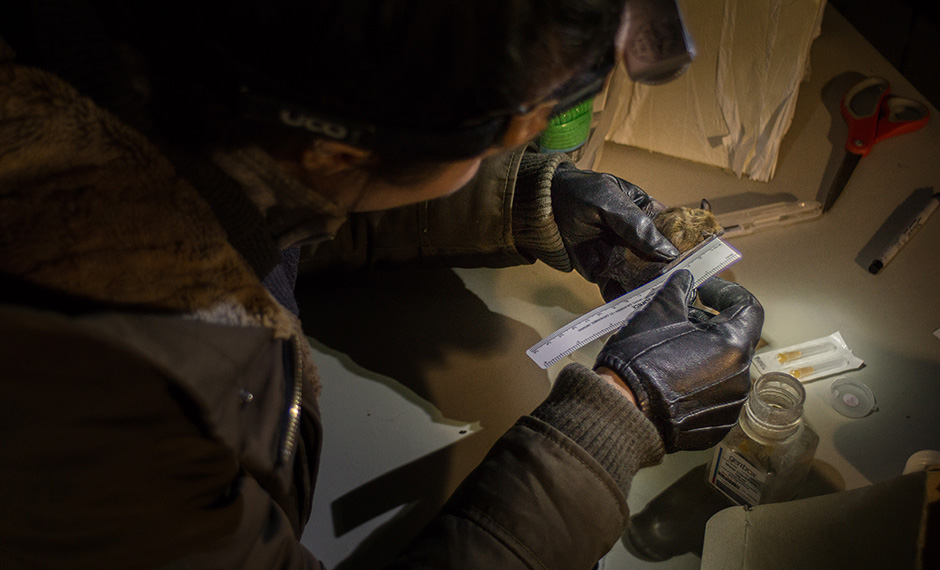 |
|
Alonge working in the field taking body measurements on big brown bat |
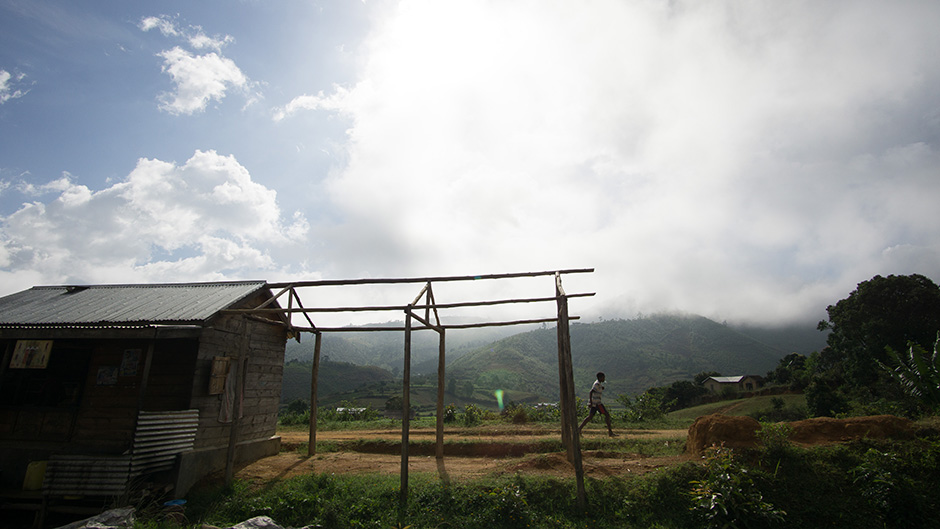 |
|
Madagascar landscape near field site in Maromizaha National Reserve, Madagascar |
Back to Main Fall 2019 Newsletter Page
